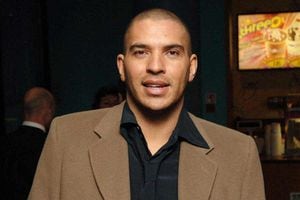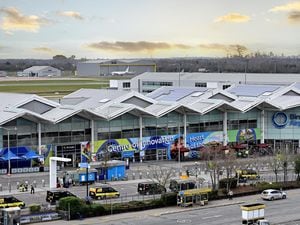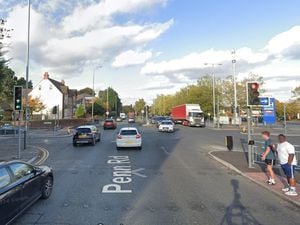Mother saves Stan from driving ban
Former Aston Villa striker Stan Collymore has avoided a driving ban after arguing he needs his car to look after his elderly mother.

The football pundit, from Cannock, who has already clocked up 12 points for speeding, admitted driving his Porsche N1 SVC at 48mph in a 40mph zone on the M6.
But he escaped a ban after arguing he needed a car for him to help care for his elderly mother, who has been in poor health.
The 43-year-old told Warrington Magistrates' Court he needs to travel across the country for work commitments including a show on radio station Talksport and would struggle to get to his mother without a car.
His mother has lost an 'alarming' amount of weight in recent years and gets 'very anxious and frightened', he told the court.
Collymore said he does heavy lifting around the house, takes her to the shops and clears her driveway during bad weather.
He was caught speeding in the temporary 40mph limit of the M6 at Thelwall Viaduct, near Warrington, on April 19, this year.
Yet despite having already admitted three other speeding offences in the last six months, the ex-England international escaped a ban, instead receiving a £400 fine.
Collymore also argued it would impact on his capacity to work for Talksport, and limit his charity work.
Earlier this year he hit the headlines after posting a controversial tweet to his 612,000 plus followers claiming Britain had 'thieved' the Falklands.
He also got involved in a row with Ben Walker, a UKIP councillor for Bradley Stoke in South Gloucestershire. Collymore said he had lodged an official complaint against Councillor Walker's conduct, but the councillor retorted that Collymore's comments were 'baffling and abhorrent'.
And he has been the subject of a string of racist and abusive tweets from Twitter users. The striker scored 35 goals in 81 appearances during two seasons at Liverpool before, after joining for a British transfer record fee of £8.5m in 1995.
He then moved to Aston Villa for £7 million in 1997.





